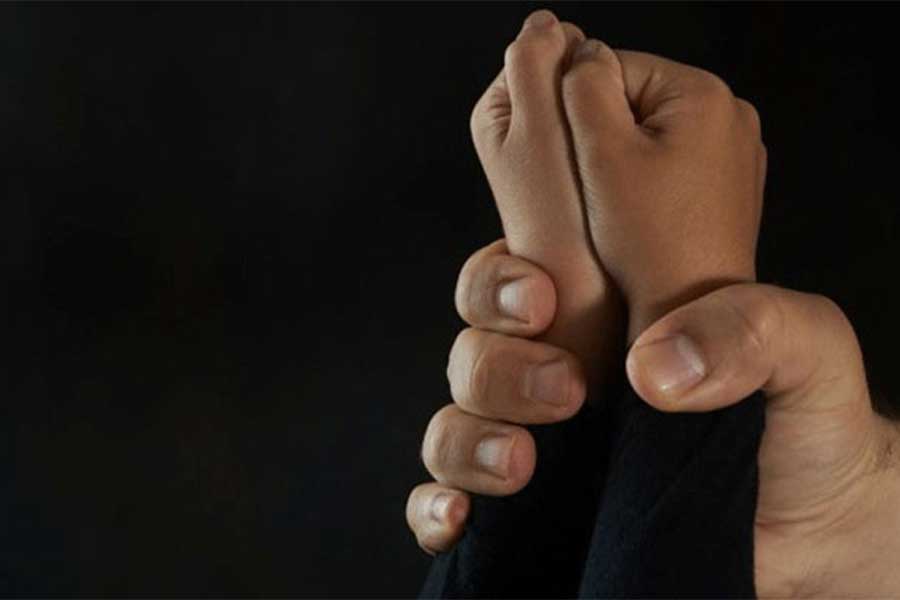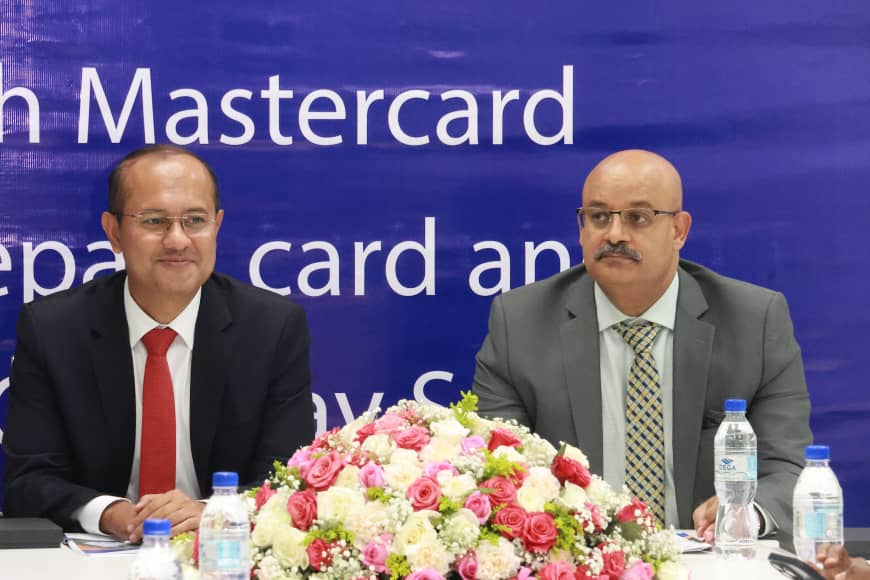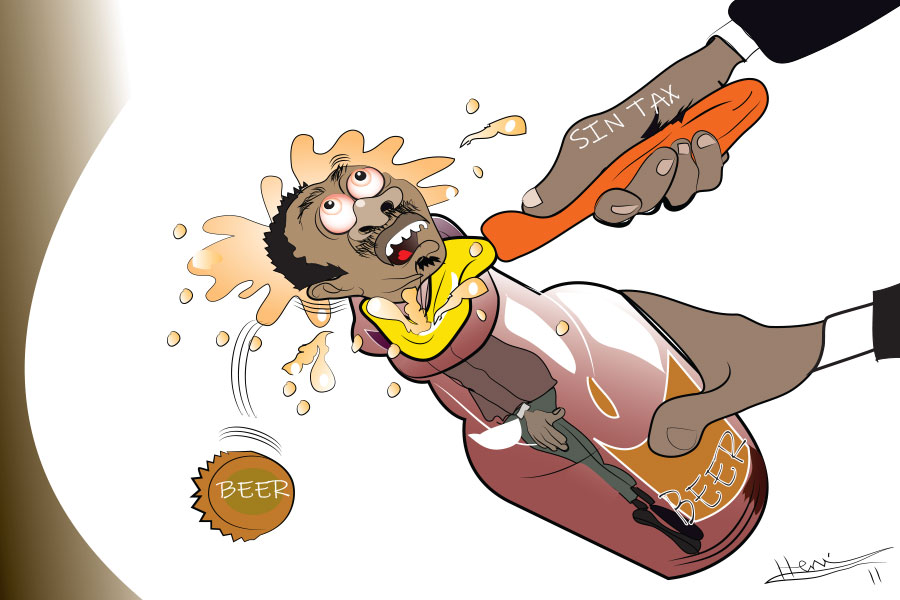
Radar | Aug 18,2024
Oct 24 , 2020
By Eden Sahle
Eritrean President Isaias Afeworki came to Ethiopia recently. Together with Prime Minister Abiy Ahmed (PhD), they visited public places such as the Grand Ethiopian Renaissance Dam (GERD), the Bishoftu site of the Ethio-Engineering Group, and the Ethiopian Air Force.
To give credit where it is due, the duo wore face masks during their appearance at some of these places. But there were also instances where they were not wearing them. They were even laxer on following physical distancing guidelines, often seen standing close to each other and surrounded by several people.
If indeed Prime Minister Abiy and President Isaias are getting daily Novel Coronavirus (COVID-19) tests, it should have been made public. If there is a reason why guidelines such as physical distancing rules do not apply to them, it should have been explained.
The appearance of the leaders in such manners was irresponsibility on their part. It should have been evident that their actions are scrutinised and even imitated by the public. Anyone can make mistakes that are just part of life, and leaders are not immune. Nevertheless, when mistakes become a habit, the negative consequences have far-reaching impacts, inducing public apathy to follow infection prevention guidelines.
During a pandemic, not wearing face masks says much about a person. Not taking preventive measures advised by public health professionals reveals not just passivity but also obliviousness in protecting others. It seems even leaders are having difficulties to accept that the old way of life is gone for the foreseeable future.
We are all in the position of choosing to make daily decisions in our everyday lives that have major consequences on public health. It is disappointing to find leaders on the wrong side of this choice.
We all have it within our power to choose to be safe, and we need to portray responsible lifestyles for others to also take responsibility. Leaders should be the examples implementing safety precautions doing what they preach to us to carry out.
Although there are few people who are cautious in protecting themselves and others, many believe that the threat of the virus has expired with the state of emergency decree and the opening of previously closed places of gathering, such as cinemas. This is even as the proportion of positive COVID-19 cases to the number of tests is going up, sometimes at over 10pc of the whole that gets tested. This shows a deep community transmission rate.
The recently loosened restrictions do not take away the uncertainties we face from the pandemic. This is true even for leaders who have the luxury of sheltering in the most secured and safe environments. The loosening of restrictions is in fact just a response to the heavy hits the economy is taking and should not serve to dissuade us from taking safety precautions.
This is why extreme responsibility needs to be carried out by leaders to act as role models that can make real differences for all citizens to create awareness. Without exemplary and strict implementation of infection safety measures, opportunities to prevent the spread of the virus can be wasted.
Government actions should manifest core infection prevention etiquette, not violate it in front of us. Lack of accountability on the government’s side is a critical issue, because leaders are the face of a nation. When they show a poor culture of accountability to guidelines, reluctance becomes rampant.
In the public’s eye, everything officials do, even when they do not mean it, reverberates within the public. Like it or not, they are representative of the body politic. Their actions speak louder than public health officials’ guides and words. Leaders are simply seen more often, and their actions are more emotionally resonant. But public guidelines mostly come off as aloof and distant. They do not influence us nearly as much in our subconscious.
The only way to change the dangerous hesitancy currently taking place in Ethiopia, where leaders and people are ignoring what is expected of them, is to take health professionals as seriously as possible. Protecting the public from infection requires applying and understanding the broader responsibility we all possess for ourselves and others. We all should actively get involved to prevent the virus from our homes and country, and leaders should not be the exception in this effort.
PUBLISHED ON
Oct 24,2020 [ VOL
21 , NO
1069]

Radar | Aug 18,2024

Commentaries | Dec 09,2023

International Stories | Apr 16,2020

Radar | Feb 22,2020

Fortune News | Jan 22,2022

View From Arada | Jan 25,2020

Commentaries | Nov 12,2022

Radar | Feb 17,2024

Editorial | Jun 22,2019

Commentaries | Nov 09,2019

My Opinion | 131970 Views | Aug 14,2021

My Opinion | 128359 Views | Aug 21,2021

My Opinion | 126296 Views | Sep 10,2021

My Opinion | 123912 Views | Aug 07,2021

Dec 22 , 2024 . By TIZITA SHEWAFERAW
Charged with transforming colossal state-owned enterprises into modern and competitiv...

Aug 18 , 2024 . By AKSAH ITALO
Although predictable Yonas Zerihun's job in the ride-hailing service is not immune to...

Jul 28 , 2024 . By TIZITA SHEWAFERAW
Unhabitual, perhaps too many, Samuel Gebreyohannes, 38, used to occasionally enjoy a couple of beers at breakfast. However, he recently swit...

Jul 13 , 2024 . By AKSAH ITALO
Investors who rely on tractors, trucks, and field vehicles for commuting, transporting commodities, and f...

Jul 5 , 2025
Six years ago, Ethiopia was the darling of international liberal commentators. A year...

Jun 28 , 2025
Meseret Damtie, the assertive auditor general, has never been shy about naming names...

Jun 21 , 2025
A well-worn adage says, “Budget is not destiny, but it is direction.” Examining t...

Jun 14 , 2025
Yet again, the Horn of Africa is bracing for trouble. A region already frayed by wars...

Jul 6 , 2025 . By BEZAWIT HULUAGER
The federal legislature gave Prime Minister Abiy Ahmed (PhD) what he wanted: a 1.9 tr...

Jul 6 , 2025 . By YITBAREK GETACHEW
In a city rising skyward at breakneck speed, a reckoning has arrived. Authorities in...

Jul 6 , 2025 . By NAHOM AYELE
A landmark directive from the Ministry of Finance signals a paradigm shift in the cou...

Jul 6 , 2025 . By NAHOM AYELE
Awash Bank has announced plans to establish a dedicated investment banking subsidiary...